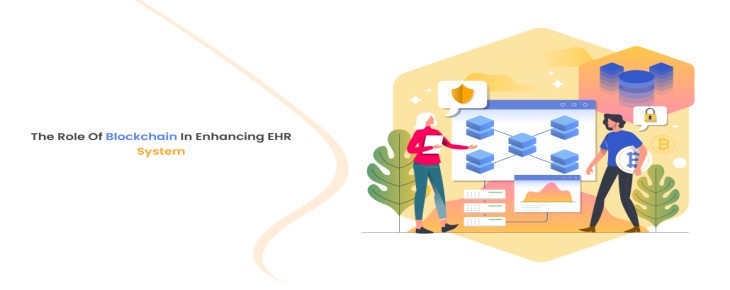Introduction:
It is a leading sector in which blockchain technology is being applied, especially in the development of ehr software. By incorporating blockchain, we can guarantee secure, efficient, and reliable EHR software and DBMSs. They emphasize a great need for this kind of transformation in EHR software development particularly in the developing market such as ehr software india. The point that the data is stored on a blockchain platform provides security for patient information while providing easy access and increasing confidence in the process from both the endpoints of medical professionals and patients.
Understanding of Electronic Health Records
It is crucial to understand Electronic Health Records (EHR) as they form a significant part of the arsenal in the current healthcare environment. EHR is an electronic health record of a patient’s paper chart and has evolved into an important tool used nowadays in healthcare facilities. Unlike conventional systems, EHR systems are enriched, as the systems maintain patient medical histories, diagnoses, medications and treatment, immunization records, known allergies, radiology images, and laboratory test information.
It should be noted that the advantages of EHR are high: They enhance the quality of patient care since they reduce the time taken to access the patient’s record, eliminate the errors that are likely to occur when the information is taken from the patient verbally and make it easier for the patient to get diagnosed and treated appropriately. EHRs improve the information exchange between medical clinicians so that everyone involved in the case is aware of a patient’s condition.
Also, EHR software drives EMR software development as well as setting the status of what other healthcare technologies can offer. Other specific functionality such as prediction instrumentations and decision support systems are also being incorporated to enhance clinician’s decision-making loads.
EHR Systems: Current Landscape
Electronic Health Records Systems commonly referred to as EHR have been adopted as part of the modern way of delivering and managing health care services. Some background knowledge and an increase of attention to EHR are necessary to comprehend the extent of its influence and discuss the current issues.
Traditional EHR Systems
Conventional Electronic Health Records Systems integrate paper-based records into digital format, which enables physicians to organize and retrieve information contained in patients’ electronic health records. These systems have eliminated the use of hard copies of the records and hence advanced in the performance of health practices.
Issues encountered by existing EHR systems:
1. Data Security Issues:
However, there has been an issue of security when using EHR to enhance the records in the system. As you mentioned EHR systems have become common targets for cyber criminals and this poses a threat not only to patients and their data but also to the overall assurance of the data being input into EHR Software.
2. Interoperability Challenges:
Another challenge is the discordant integration of different EHR systems which are different systems from different manufacturers to work as one whole system. While EHRs provide clear benefits in clinical care, their lack of standardization can result in dispersed data that are not useful to clinicians.
3. Patient Privacy Concerns:
Patient confidentiality is one of the core aspects that needs to be considered and protected in healthcare. Today’s EHR systems initially appear to lack strong approaches to preserving the confidentiality of customer records while being easily accessible to the right doctors. This is always a delicate limbo to strike and remains so to this day.
Benefits of Electronic Health Records
The challenges however should not dismiss the fact the EHR has definite benefits. The implementation of EHR Software improves the quality of care since one is able to get online, updated, and complete information about the patient. They enhance the flow of information within providers’ networks, minimize errors, and enable efficient work in resolving health issues, and, in turn, positively affect global healthcare standards.
Conclusion:
Hence, blockchain technology showcases the possibility of improving EHR systems to promote medical innovation. Security, communication, and trust, which make up the blockchain fundamentals, are what the EHR serves best, namely efficiency, accuracy, and patient-centered services. The integration of blockchain in healthcare is a giant leap towards an improved and advanced interconnected, secure, and efficient system in the healthcare sector putting patients as well as data in priority.

